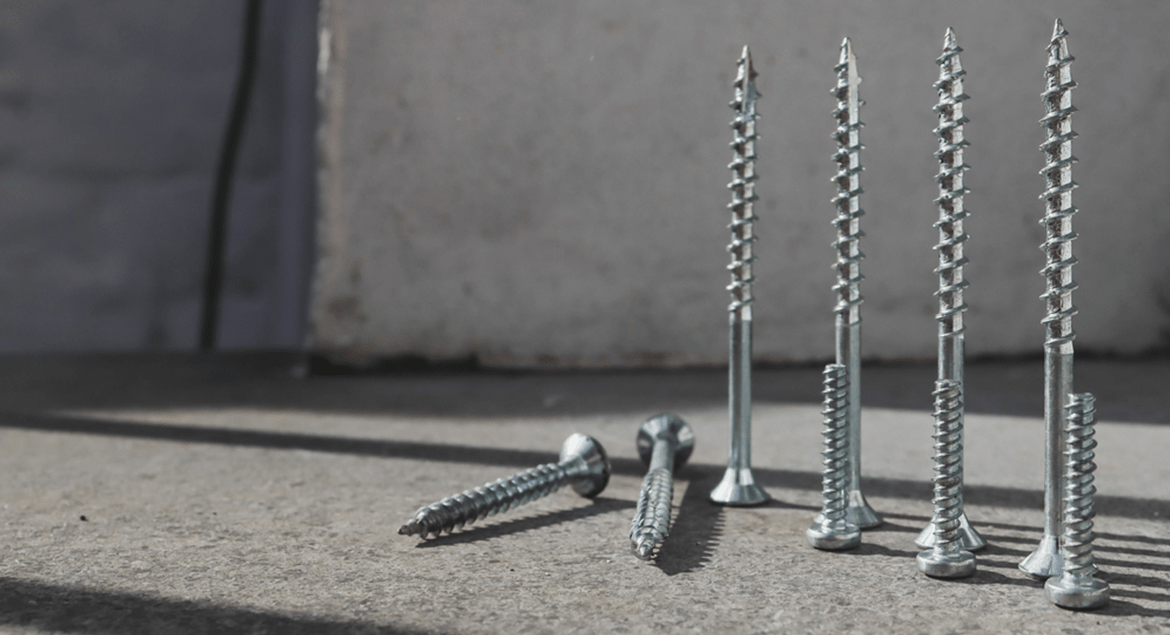Concrete Screws Selection Guide

Since there weren’t many options for joining metal and wood, the homeowners had to rely on a hardened nail or a wood plug. Prior to the advent of the concrete industry, homeowners had few options for joining wood and metal to concrete screws. Fortunately, there are plenty of solutions that work for both residential and commercial applications.
Choosing the correct concrete screws are also very important for a number of reasons. A good quality concrete anchor will help minimize risks and provide project efficiencies. Deciding on the right anchor for your concrete project can be challenging. This guide will help you choose the right anchor for your project.
These are often referred to as concrete screws or bolts. They are designed to provide a secure and strong hold. These are often used for securing solid brick, hollow brick, or stone surfaces. They can be easily and quickly installed. These anchors can be easily fixed to the concrete surface, avoiding the risk of damaging it. They can also be used to close the gap between the concrete and the wall.
Anchors and concrete bolts are versatile and can be used for a variety of building services applications. These concrete screw anchors are versatile and can be used in various conditions. They are also fire rated. A good concrete screw anchor is an integral part of any project. It can help keep your work site secure and prevent erosion. Whether you’re working on a simple masonry project or a more complex one, there are plenty of masonry fasteners and concrete screws that can help.
Different types of Concrete
There are many factors you need to consider before choosing the concrete screw sizes. One of the most crucial among those is the type of concrete you will be working with. There are primarily two types of concrete. They are:
- Non-cracked concrete: The zones affected by compressive load are generally considered non-cracked. The probability of these concrete cracking is comparatively lower.
- Cracked concrete: Zone cracks can develop in reinforced concrete after tensile loads have been applied. Even in areas with relatively low loads, cracks can still develop. Since anchoring into cracked concrete is very durable, only those anchors that are approved and tested should be used.
Types of Concrete Screws
There are various styles and designs of concrete screws and anchors bolts that can be used for different projects. Some of them are given below.
- Hex head concrete screws
Hex head screws are the strongest of all. They can be used to secure holes in various applications or they can be tightened to provide a firm grip. The Hex Head concrete screw anchor is designed to secure concrete, brick, and hollow blocks. It features a durable, stainless steel finish.
- Self-drilling concrete screws
Self-tapping or self drilling concrete screws are ideal for a variety of exterior and interior applications. Their flexible and self-tapping action provides a positive anchorage point in concrete, brick, stone, and blocks.
- Index Thunderbolt Hex Head concrete screws
This concrete screw features a silver ruspert coating that prevents corrosion against concrete. It is suitable for use in harsh environments.
- Flat head concrete screws
Flat head anchors are more versatile and are typically weaker than the hex head concrete screws. They are also more durable and can be used with various materials.
- Countersunk concrete screws
The countersunk concrete screws are designed to secure materials such as concrete, brick, and hollow block. It can also be used for applications requiring quick and precise fastening.
- Countersunk masonry screw
This countersunk masonry screw is ideal for fixing ironmongery. Its zinc plated finish makes it durable and cost-effective
- The Thunderbolt Eye anchor
The Thunderbolt Eye anchor is a self-tapping anchor that can be used on various substrates such as concrete, brick, marble, and wood. It’s ideal for running wire wherever you need a clean and secure output.
However, it is important to follow the manufacturer guidelines before installing the concrete screws. Not following the manufacturer’s instructions can lead to the incorrect installation of concrete anchor bolts. Other mistakes that homeowners tend to make are breaking off a concrete stair step and cracking a corner of a patio slab. In order to tackle this problem, you should stay away from drilling too close to the edges. Dust can also prevent the fasteners from moving in the hole. Use a baby’s ear syringe to remove it. Instead of using concrete walls for attaching drywall, attach it to pressure-treated wood. On the whole, concrete fastening can be done perfectly, if you are using the right concrete screws while working on the projects.




